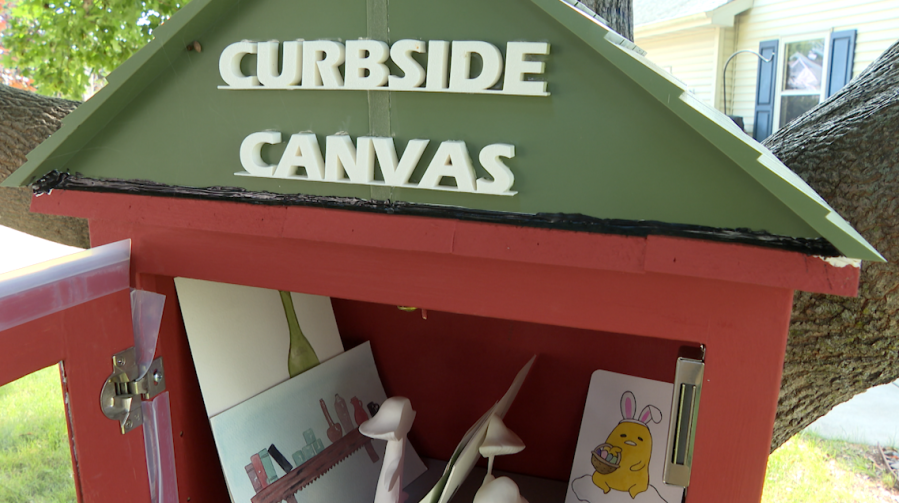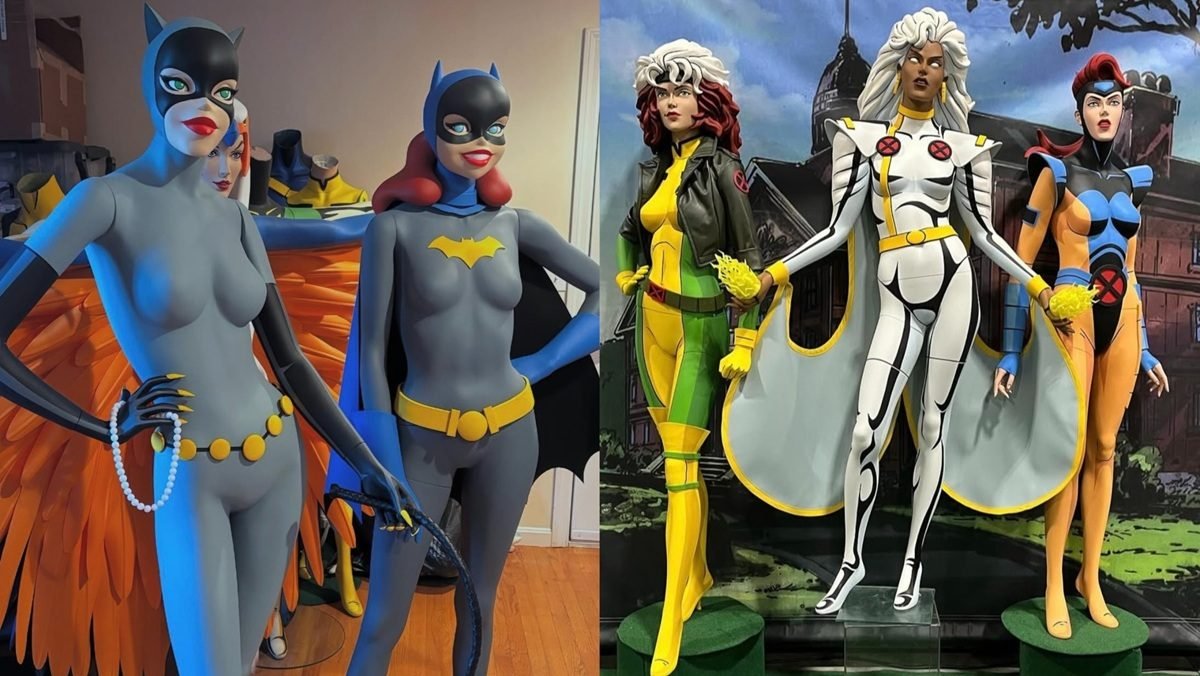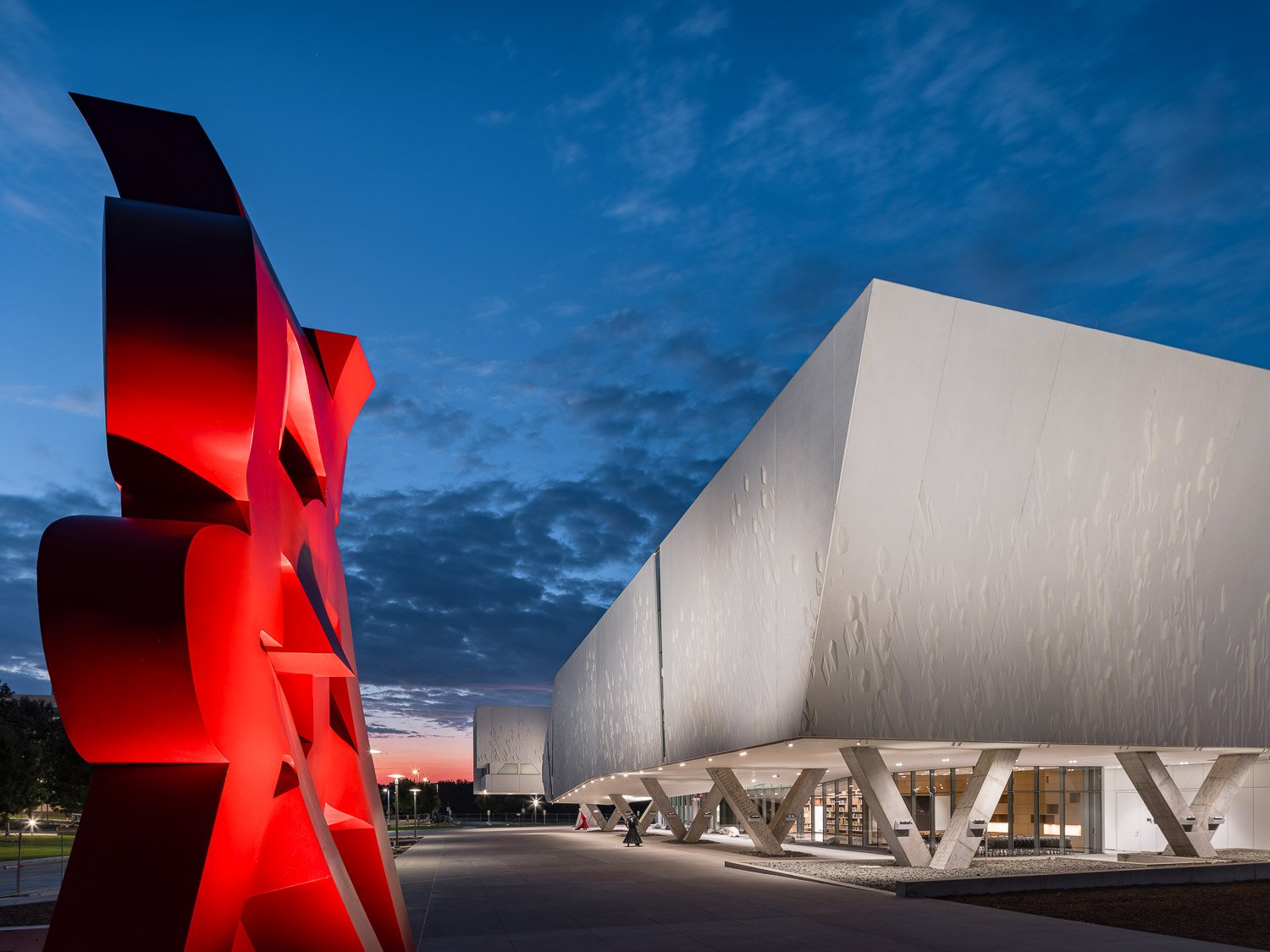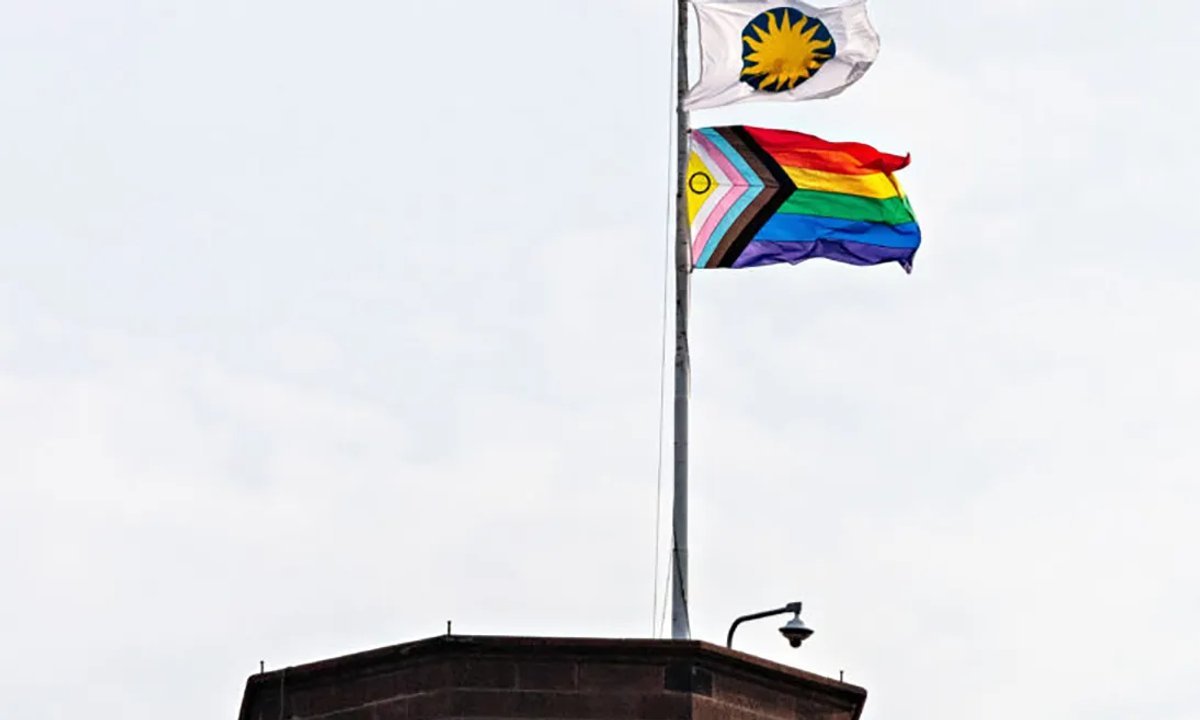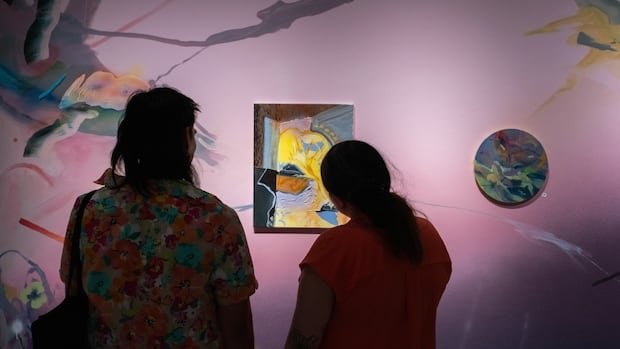“Reaching Out to Catch the Sun’s Rays,” one of Steve Gleason’s AI-generated creations, depicts a … [+]
Before being diagnosed with ALS in 2011, former pro football player Steve Gleason filled sketchbooks with his black-and-white graphite drawings. The progressive neurodegenerative disease has stolen the NFL alum’s muscle function, so he can no longer wield a pencil. But he’s experiencing a vibrant artistic revival through artificial intelligence.
The AI-generated art in his series “Resilient Spirit,” on display now in New Orleans, explodes with vivid color and symbolism. In “No Tree Can Grow to Heaven, Unless its Roots Reach to Hell” named for Gleason’s prompt for the piece, a tree’s roots extend down into Earth’s fiery orange and yellow magma, while a soft, dreamlike sky silhouettes its trunk and crown. In another image, “Reaching Out to Catch the Sun Rays,” a figure stands beside the sun, looking upward from a swirling, richly saturated landscape that could be mistaken for something Vincent Van Gogh painted.
Gleason, 47, created digital images of his sketches using Adobe’s Firefly suite of generative AI tools and inputting text prompts via an eye-level “keyboard” attached to his wheelchair that turns eye movements into words. Adobe gave Gleason early access to Firefly, including a feature that lets it “learn” from his prior art.
“I can see this technology helping so many,” Gleason, a former New Orleans Saints safety, said in a statement. “This is a conduit for self-expression, providing opportunities for creation and contribution to countless individuals who previously felt these possibilities were beyond reach.”
Gleason calls this image “No Tree Can Grow to Heaven, Unless its Roots Reach to Hell” after the … [+]
Visitors to the exhibit of Gleason’s work can thumb through a book of sketches he created prior to … [+]
Gleason is well known and beloved in The Big Easy, where he made one of the most memorable plays in New Orleans Saints history. It led to a win in the first home game following Hurricane Katrina, a victory that uplifted a beleaguered city.
“Resilient Spirit” premiered at a private event Thursday attended by more than 80 guests at the headquarters of creative collective Nieux Society, where the works will remain on view on large monitors through the end of the month.
“The images are like poems,” Lindsey Roussel, Nieux Society’s co-founder and managing partner, said in an interview. “You can feel the emotion.”
Steve Gleason’s poetic prompt for this one: “A silhouetted boy watching the total eclipse. Feeling … [+]
Nieux helped spearhead the exhibit as part of a broader push to inspire others with ALS to access their creativity. The project stems from a collaboration between Adobe and Team Gleason, a nonprofit founded by Gleason and his wife Michel to empower and support people living with the disease. The art initiative’s expected to culminate with a global exhibition featuring ALS artists and supporters at the 2025 Super Bowl in New Orleans.
“I hope the ‘Resilient Spirit’ collection inspires others to use new tools to make their visions become reality,” Gleason said. Roussel and Adam Wood of Adobe made minor formatting tweaks to Gleason’s own works, but the athelte drove the creative process. “He was the lyricist and the composer and Adam and I were just the backup band,” Roussel said.
Steve Gleason listens as David Darragh, managing director of the Team Gleason foundation, addresses … [+]
Generative AI continues to elicit a range of reactions—from enthusiasm about the tools’ creative potential to concern artists’ work will be stolen to train AI datasets or that algorithms will steal creatives’ jobs altogether. But Gleason’s AI-generated work exemplifies the promising ways technology can unlock creative expression for those living with disabilities.
“As concerned as photographers and artists are with our copyright being flouted and our work being used in AI training without our permission, seeing Steve’s AI artwork and talking with him about how (meditation tradition) Dzogchen and Buddhism in general shape his use of AI tools was a heart-opening experience,” New Orleans artist Thomas Laird wrote on LinkedIn after attending the event.
Steve Gleason says meditation and Buddhism shape his use of AI tools to create art.
Amyotrophic lateral sclerosis causes motor neurons in the brain to degenerate, taking away the ability to move, talk and breathe, while generally leaving intellect and memory intact. Addressing the crowd at the art opening with a computerized voice similar to the one used by renowned theoretical physicist Stephen Hawking, who also had ALS, Gleason said he’s always seen himself as an artist, and that creativity has the power to embolden those who’ve received the devastating diagnosis.
“Until there is a cure for ALS, creativity powered by technology is the cure,” he said. “The only limit is our collective imagination.” (Listen to his remarks here.)
Gleason’s memoir A Life Impossible. Living with ALS: Finding Peace and Wisdom Within A Fragile Existence releases on April 30, co-authored with New Orleans Times-Picayune sports columnist Jeff Duncan.
“I may not be able to do things the same way I did before ALS,” Gleason said at last week’s event, “but life, communication and creative expression are still possible.”
Steve Gleason shares a bit about his artistic history using a specialized keyboard that turns his … [+]


